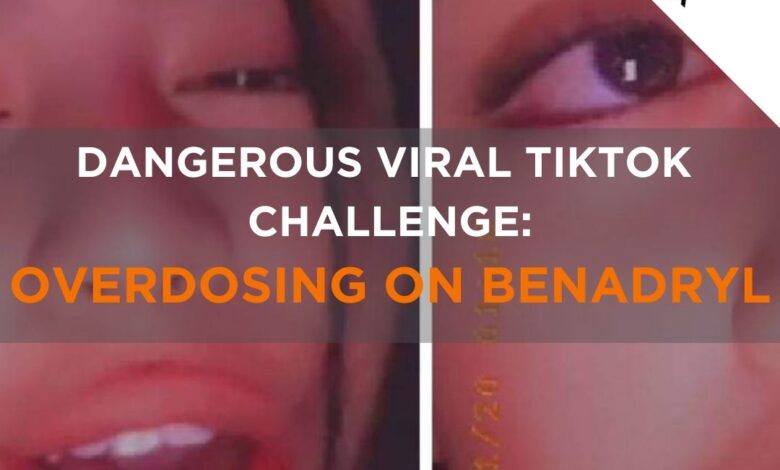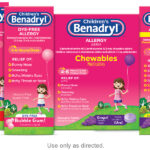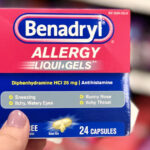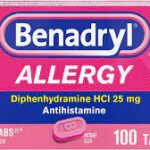How Safe Is The Benadryl Challenge?

Recently, there have been videos challenging users to take large amounts of an over-the-counter drug, diphenhydramine, aka Benadryl®, to cause hallucinations or induce an altered mental state. In today’s pandemic world and people unable to hangout in real life, social media platform such as TikTok have become increasingly popular, especially among teens. The app often features lighthearted 60-second videos, most commonly filmed around dances or pranks.
But a darker side of TikTok exists, often times promoting dares or risky behavior. The latest challenge to hit the app has health experts and parents alike concerned.
The Benadryl challenge
Benadryl is an antihistamine most commonly used to treat seasonal allergies, but it can also lessen cold symptoms and reduce itching from bug bites, hives or rashes.
Pediatric emergency medicine specialist Purva Grover, MD, says the challenge is extremely dangerous and both teens and parents need to be aware of the risks.
The challenge encourages users to take upwards of 12 tablets at a time, while the directions say children age 6 to 12 should take one tablet every 4 to 6 hours, and adults should take no more than 2 tablets every 4 to 6 hours. The instructions also say not to take the medicine more than six times in 24 hours.
The most common side effect of diphenhydramine, when taken correctly, is drowsiness. But when taken in excessive amounts, risks can include:
- High body temperature and heart rate.
- Confusion, sedation, delirium, hallucination.
- Blurred vision, which could result in falls and injury.
- Urinary retention.
- Nausea.
- Vomiting.
- Dizziness.
But the most dangerous outcome? Death.
Large doses of Benadryl can cause high heart rates, which can trigger an arrhythmia, stroke, seizure or cardiac arrest. All of these conditions could result in permanent brain damage or induce a coma.
“An overdose can harm everyone differently,” Dr. Grover says. “You can’t pinpoint an outcome because everyone will respond differently, which makes this challenge so dangerous and risky.”
Teens are often highly influenced
The Benadryl challenge isn’t the first time that a viral online dare has made headlines and raised concern among the medical community. The Tide pod challenge and the cinnamon challenge were among the first fads to develop negative attention regarding unsafe behavior, filmed to fuel online popularity.
“It’s tricky because teens can get positive reinforcement with all the likes and views from the videos they post,” says Dr. Grover. “So the more risky or shocking, the greater the possibility that more people will see it.”
So what can parents do?
Dr. Grover says that discussing online videos or viral risky challenges needs to become part of the conversation you have with your children and teens. Just as you would discuss illegal drugs, vaping, sexting and safe sex, you’ll need to address what your kids are seeing online and on social media.
The more you talk about it, the more awareness it brings, she says. This challenge is particularly dangerous because it’s an OTC medication and it’s easy to obtain. Parents need to be aware of what their kids are being exposed to and what items they have in their home relating to it.
And it’s not just solely what kids see online – their friends, babysitters, older siblings, what they hear in school – can all have an impact on them. It comes down to talking with them to keep a pulse on what’s happening.
FDA Drug Safety Communication
The U.S. Food and Drug Administration (FDA) is warning that taking higher than recommended doses of the common over-the-counter (OTC) allergy medicine diphenhydramine (Benadryl) can lead to serious heart problems, seizures, coma, or even death. The regulatory body stated that they are aware of news reports of teenagers ending up in emergency rooms or dying after participating in the “Benadryl Challenge” encouraged in videos posted on the social media application TikTok.





